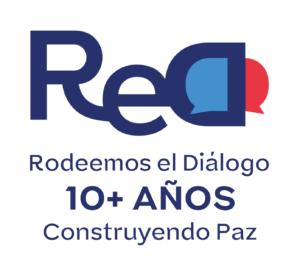Foro Internacional de Victimas: Londres
El 13 de septiembre de 2014 se llevó a cabo el Foro Internacional de Victimas al cual asistieron colombianos y colombianas residentes en 20 ciudades en Europa y Latino América. El foro conto con el apoyo de varias organizaciones no gubernamentales, la sociedad civil colombiana y la presencia de las víctimas del conflicto armado residentes en el exterior.
Actualmente el punto que se discute en la mesa de negociaciones en la Habana entre la guerrilla de las FARC y el Gobierno de Colombia es el tema de las víctimas, un punto clave dentro de los diálogos de paz. El Foro International, ha sido el mecanismo que ha permitido que las victimas que viven fuera de Colombia se integren, participen y elaboren propuestas concretas que serán llevadas a La Habana.
En la ciudad de Londres, el foro tuvo un gran éxito, ya que logro convocar 70 víctimas directas e indirectas quienes tuvieron la oportunidad de expresar sus puntos de vista, contar sus testimonios y elaborar propuestas que van a ser radicadas en documentos que serán enviados directamente a la mesa de conversaciones en Cuba.
La metodología del evento consistió en la conformación de 6 grupos, cada uno con 12 integrantes, un facilitador y un relator.
Los participantes hablaron sobre reformas a la educación, reforma agraria, cese al fuego, verdad, justicia y reparación.
Entre muchas propuestas, se mencionaron las siguientes:
El sistema educativo es primordial. Debe haber una narrativa histórica que contribuya a la no repetición del conflicto armado.
Educación ciudadana acerca del post-conflicto y sobre los procesos de ajuste al sistema judicial cuando se firme el acuerdo de paz.
Reparación económica a las víctimas en el exterior, no solo reparación moral.
Establecimiento de una Comisión de la Verdad en donde se documente lo que sucedió y la conformación de instrumentos específicos para documentar los casos en el exterior de forma diferenciada para que la comisión tenga acceso a las víctimas residentes en el exterior.
Monitoreo y re-distribución de la inversión extranjera. Que se les exija a la multinacionales recursos para inversión social en Colombia, y además fortalecimiento de las instituciones políticas para que estos recursos no se pierdan.
Continuación del dialogo, no solo en la mesa de negociaciones, si no dialogo entre la sociedad para que no se repita el conflicto, tolerancia entre los colombianos para que disminuya la violencia.
A pesar del éxito del Foro, los participantes manifestaron mayoritariamente miedo, la desesperanza, la pérdida de credibilidad por las instituciones políticas en Colombia. Acontecimientos que exigen claridad por parte del Estado Colombiano hacia las victimas con soluciones precisas y justas. Sin embargo, el foro de Londres, ha abierto la posibilidad de visibilizar a las víctimas que están fuera de Colombia en una sola voz, una voz que reclama derechos y deberes dentro de la democracia Colombiana.













